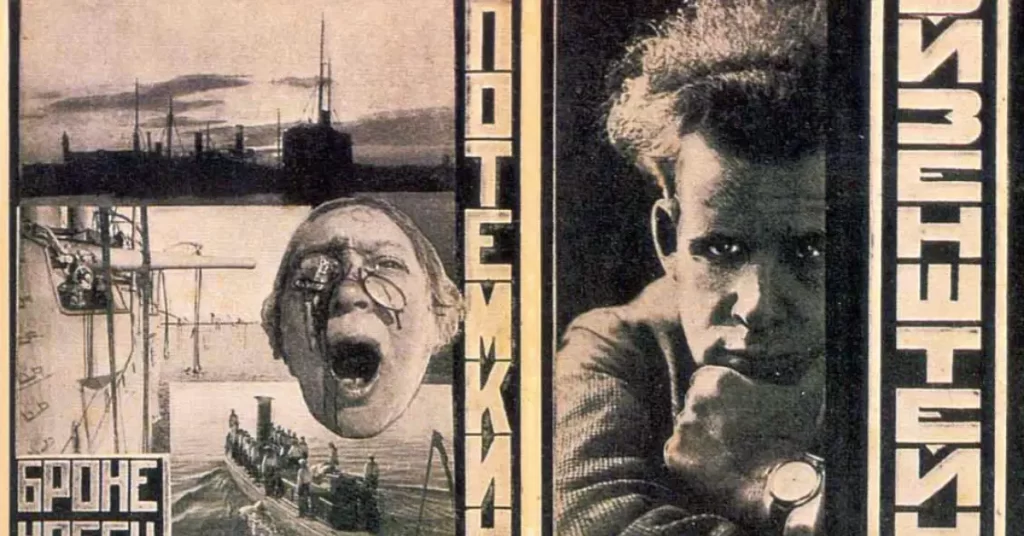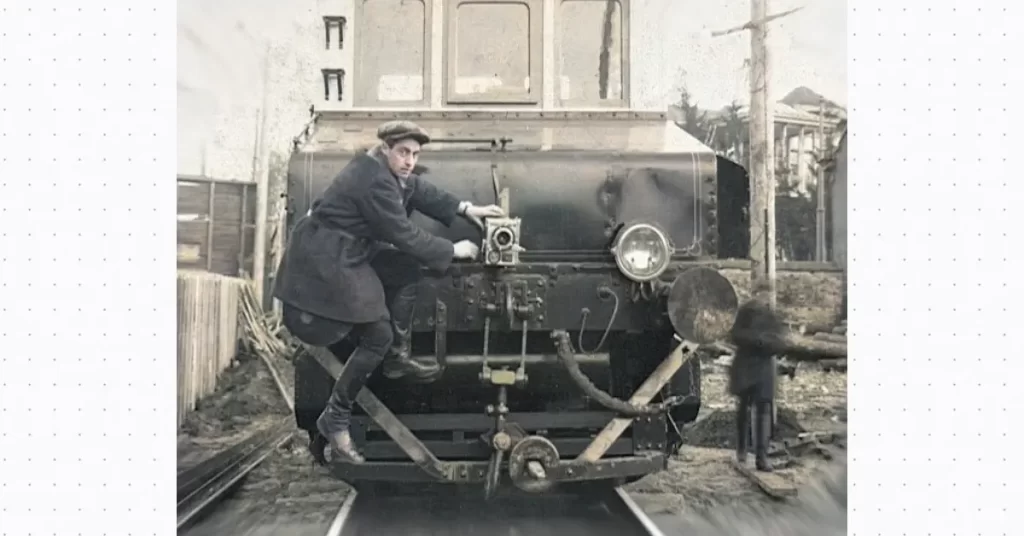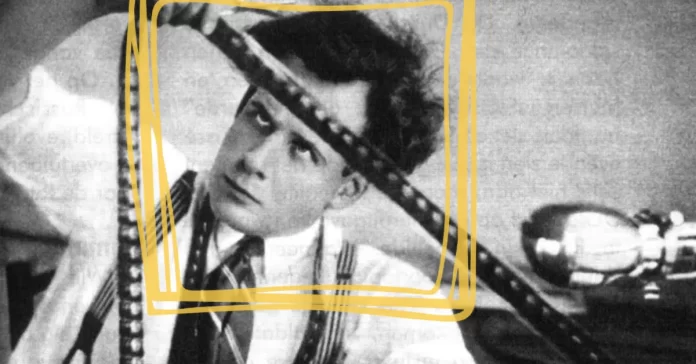The Evolution of Russian Cinema: Blog on Culture & Social History
Sergei Eisenstein’s Filmmaking Challenges in Soviet Union
Sergei Eisenstein faced hurdles in Soviet filmmaking as his unique directorial style clashed with the idealized Soviet Realism movement. Despite initial support for Stalin’s plan, Eisenstein’s credibility suffered due to prolonged stays in the West and his reliance on exiled revolutionary Leon Trotsky as inspiration. This highlighted the changing role of propaganda, prioritizing pacification over future visions and marking a significant point in The Evolution of Russian Cinema.

Eisenstein’s Cinematic Revolution in Socialist Russia
Sergei Eisenstein redefined cinema’s purpose in a socialist state, prioritizing social issues over entertainment. His rocky relationship with the government mirrored the alignment of Russian cinema with its leaders. Battleship Potemkin, a hallmark of Soviet film, portrayed Moscow’s struggles and challenged storytelling norms by casting the Tsarist elite as antagonists. The film is now studied alongside Triumph of the Will, sparking debates on its historical accuracy and propaganda impact.
Dziga Vertov’s Revolutionary Documentary Filmmaking
Dziga Vertov revolutionized documentary filmmaking with his concept of “Kino Pravda” or “film truth.” He believed in capturing an objective perspective of the world through the camera and celebrated the synergy between humans and machines. His experimental film, Man with a Movie Camera (1929), showcased the vibrant cityscape of Moscow and synchronized the movements of workers with their equipment. Vertov’s films broke traditional storytelling norms, paving the way for a new era of expression in cinema.
Thaw Period: Challenging Soviet Narratives through Cinema
After succeeding Stalin in 1956, Khrushchev brought a promise of greater tolerance and kindness to the Soviet Union. During the Thaw period, film and book censorship relaxed, enabling artists to challenge the country’s historical narratives. Movies like “The Cranes are Flying” and “Ivan’s Childhood” presented war as a senseless massacre of innocence, a departure from earlier productions. This new wave of cinema shifted focus from glorifying Soviet heroes under Stalin to portraying the individual suffering of those deeply impacted by war.
State Control and Film Censorship in Putin’s Russia
Filmmakers in Putin’s Russia face strict approval processes from the Culture Ministry. Foreign films like “The Death of Stalin” and “Rocketman” are banned or edited, while Russian productions undergo even greater scrutiny. The Ministry banned a documentary on Pussy Riot but provided significant funding to “Battalion,” a war film. The state supports films aligned with the Putin regime, even donating tanks for “T-34” production.

Trotsky and the Complicated Politics of Russian Cinema
A miniseries produced by Channel One and Sreda in 2017 depicted Trotsky as a charismatic revolutionary who crushes rivals and seduces women, while also revealing his responsibility for millions of deaths. The show’s portrayal of Trotsky as both vain and a victim of discrimination faced criticism, with foreign viewers interpreting it as xenophobia in modern-day Russia. The series aligns with the Kremlin’s history curriculum, showcasing the USSR’s rise to power while denouncing revolution as futile and self-destructive.
Navigating the Complex Relationship between Russian Cinema and Politics
Russian cinema faces the challenge of balancing the country’s complex past and the current political climate. War films celebrate ordinary soldiers’ campaigns during the Great Patriotic War, while political dramas vilify communist politicians. This approach allows the Kremlin to inspire national pride while warning against the dangers of revolt.
The Role of Film in Shaping the Present and Resisting Change
Modern dictators, including Putin, use propaganda to pacify the present rather than shape the future. Putin aims to discourage change and maintain the status quo, and contemporary films reflect this approach. They evoke nostalgia for the past while cautioning against the perils of revolutionary change.
Russian cinema goes beyond being a mere propaganda mouthpiece, offering a captivating and multi-dimensional art form that mirrors the intricate tapestry of Russian history. From the early Soviet films heralding communism’s rise to contemporary productions navigating the complexities of the past, Russian cinema remains a vital and enthralling part of the nation’s cultural legacy.
To read more blogs on culture and social history – Click here

